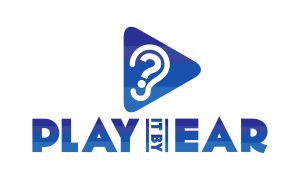At the Piano Shop Bath we like to encourage budding musicians to achieve their dreams. We love to hear stories of young and old alike taking to a new instrument and pushing their creative boundaries.
The piano is of course, a challenging instrument, and by that token it attracts a large following of people who would love to start, or many who would love to re-kindle their childhood interest.
Similarly, there are countless people who have achieved a modest standard of playing but lack the understanding of how to start improvising or developing their own music.
A large portion of creative musicians who perform in popular idioms, whether on stage, in a pub, a folk club, or on a cruise ship are self-taught musicians, who never learned to play from music notation ….. they simply ‘play by ear’.
It’s not every budding pianist that possesses the discipline to learn scales, notation theory, find the right teacher and progress through grades and exams until they meet some generally accepted performance level.
Another way …..
There is an alternative, which requires more of a personal journey; as this journey casts away many of these more traditional disciplines. However, it still demands that the musician engages (but in a very different way) to their chosen instrument.
Browse the internet and see how many well-known ‘self-taught’ musicians there are …. you’ll be amazed.
Their secret is that they ‘listened’ to the music, and although at first they were probably intimidated by what they heard, they took small steps at a time experimenting and emulating the sounds they heard. They pursued their journey through self-determination and having fun at the same time.
The one thing that’s sometimes given too much credence during traditional piano lessons is the need to play the right notes exactly as written down. Sometimes it leaves no space for experimentation or creativity, as the goal may be the achievement of a grade rather than the pure pleasure of playing.
The Beatles didn’t read music, so how is it that they were able to compose such a compendium of music without any training? The truth is, of course, that they trained their ears to hear the flow of music and learn from their fellow musicians the fundamentals of chord structures, how chords are formed, and which notes fit within a sequence of chords. Playing by ear means a budding pianist may need to put aside the music notation and learn a few chord ‘shapes’. The pianist needs to experiment with fingering patterns and find what works, and which chords flow with each other.
It does take time and a heap-full of natural ability will go a long way. It can be tremendously rewarding as it provides quick results, and leaves the pianist appreciating their progress.
At the Piano Shop in Bath we can provide in-house lessons and we have many teachers on our books who can guide and help.



